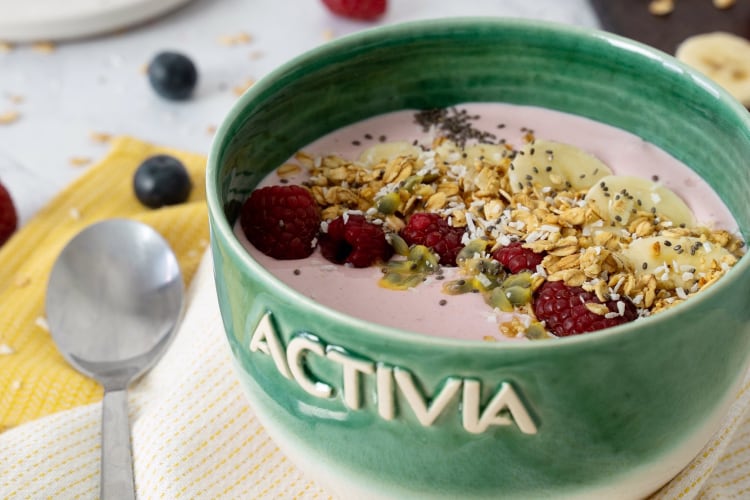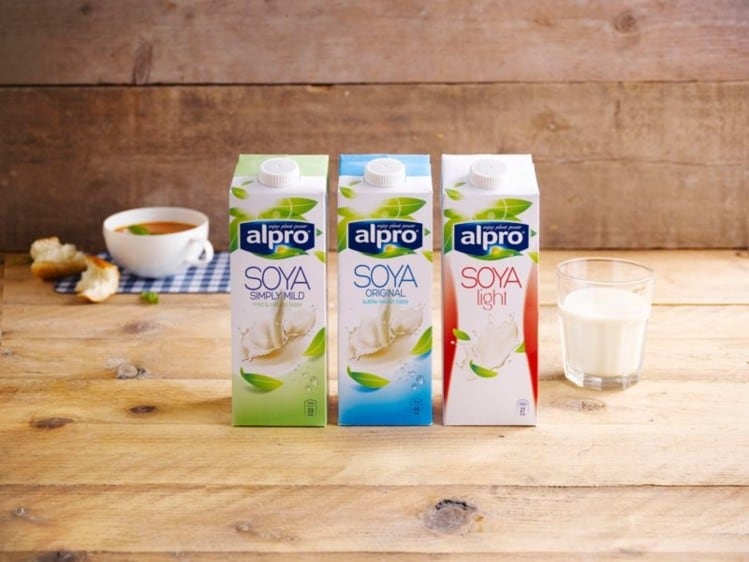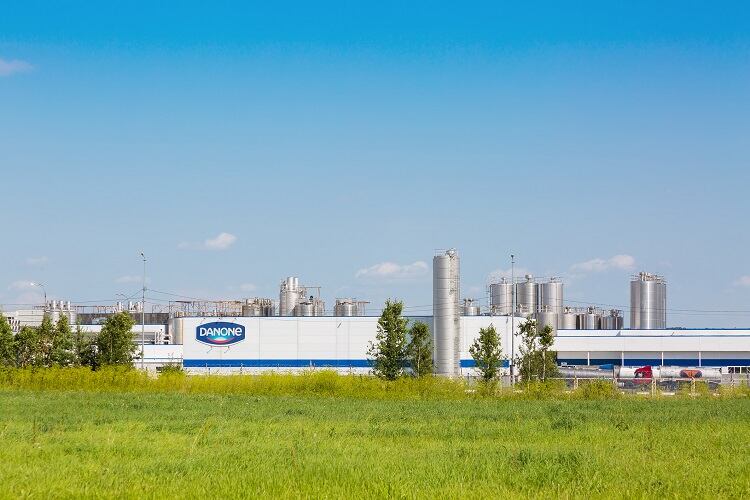French food giant Danone benefits from a strong position in health and wellness foods. It is the owner of leading yogurt brands Activia and Actimel and has a desirable footprint in plant-based products through Alpro in Europe and Silk in the US.
But the company is coming under pressure from activist investors, who argue that these strengths are not translating to a superior performance.
In a public letter yesterday, Artisan Global Value Strategy and Artisan International Value Strategy – which hold 3% of the group – argued that while Danone ‘has one of the best collections of assets in the global food industry’ on ‘almost every measure’, Danone's performance has ‘lagged’.
Danone failed to achieve targets, set in 2017, for organic sales growth of 4-5% and an operating margin of 16% by 2020. In October, the company unveiled a new strategic plan with somewhat less ambitious goals. A month later, the group revealed 2,000 job cuts and the adoption of a local regional structure in an effort to generate cost savings of €1bn - an initiative Danone has dubbed Local First.
The shift has prompted some to suggest that Danone’s focus on margin could come at the detriment of its sales outlook.
In a note to investors this morning, Bernstein analyst Bruno Monteyne wrote that ‘a strategy that is focussed on cost cutting’ with ‘its fruits dropping to the bottom line rather than nurturing brands’ is resulting in Danone’s ‘underperformance’: 2.5% organic growth.
International CEO Véronique Penchienati-Bosetta sees things differently. For her, and the rest of Danone’s management, Local First is about unlocking the power of in-country consumer insight and combining it with Danone’s global strengths in areas like science-based innovation and R&D.
“The Local First project is a growth project. Of course, it will generate savings because [we are] de-layering the organisation, going more local. But it is to be able to invest more in our brands and fast growing trends, while at the same time leveraging our scale and assets for superior execution across categories,” she told FoodNavigator.
“Local First is how we can accelerate and that is what we are starting to do in 2021, in terms of strengthening the resource allocation on the trends, the brands, that are growing. What we call the growth spaces.
“Local First is more than a pure organisational transformation. It is really about a growth transformation.”
Local insight and global expertise
Rather than business units devised along global category lines, Danone will take a country-based approach. Its business will be split into six zones and 20 country business units. Since November, when she took over as International CEO, Penchienati-Bosetta has been responsible for all operations outside North America.
Executing this transformation certainly carries some risk of near-term business disruption – but Penchienati-Bosetta is confident the new structure will unlock fresh avenues of growth and innovation.
“Having one country entity that [works] across categories is a fantastic way to cross-fertilise our categories, gain new distribution, allocate resource to potential, increase capabilities and boost agility and decision making through a de-layered organisation... Decisions need to be made in-country, where there is the best understanding of local consumer needs, local ecosystems, local competition.
“We need to combine local-centricity... with continuing to benefit from the scale and assets that we have in Danone globally. It can be the science assets, the product development assets, that answer growing trends.”
Shining in health and wellness
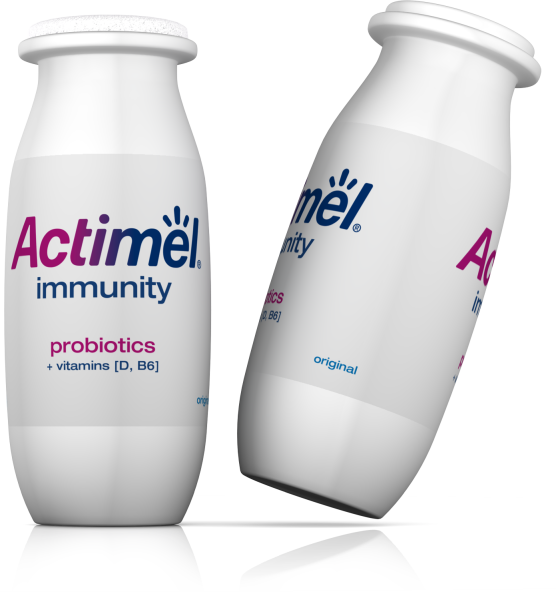
Chief among these ‘growing trends’ is the shift towards healthy foods.
This, Penchienati-Bosetta believes, aligns with Danone’s ‘mission’: “Bringing health through food to as many people as possible, I believe has never been as relevant as today.”
The COVID-19 pandemic has accelerated consumer interest in health and wellness, alongside a return to ‘essential categories’ and an increase in eating-at-home, the executive continued.
“There is the strong urge for healthier eating. Immunity protection and in-home family meals have become even more important during lockdown. People have turned back to essential categories,” she observed.
While Penchienati-Bosetta can’t talk about Danone’s full-year performance ahead of their upcoming results, scheduled to be released next week (19 February), she can say that these trends have had a positive impact on many of Danone’s dairy and plant-based brands.
“There has been a big acceleration of the overall dairy category, back to growth in 2020, and a continued acceleration of the plant-based business, up by 20% in most geographies, showing that this category is totally in sync with the ‘One Planet, One Health’ interest of the consumers,” she revealed.
Dairy and plant-based: ‘In most of our business we are gaining share’
In both dairy and plant-based, Penchienati-Bosetta said Danone’s brands are helping to lift category sales.
“We have been driving the growth of these categories. It depends market by market, but in France, for instance, we contributed more than 30% of the category development in dairy and 50% plant-based. It is a big contribution to category development, which is linked to the size that we have and the fact that in most of our business we are gaining share.”
In dairy, Actimel has been a star performer, growing ‘double digits’ in the year-to-date. The brand is ‘gaining market share in all countries’, Penchienati-Bosetta noted. She attributed this strong performance to Actimel’s positioning in probiotics and the renovation Danone carried out, adding one-third of your RDA of Vitamin D. This re-vamp was launched in 99 countries in just six months. “The overall Actimel brand is gaining share everywhere, due to the trend towards immunity.”
Danone wants to reach plant-based sales of €5bn by 2025 and she said that the company is ‘on track’ to hit this target.
“Our business in plant-based was increasing by plus-20% with a mix of the core business growing and innovation,” Penchienati-Bosetta said, pointing to the success of product launches like Alpro’s no added sugar variety, Alpro Greek Style yoghurt in the UK, and the Alpro Barista range for coffee chains.
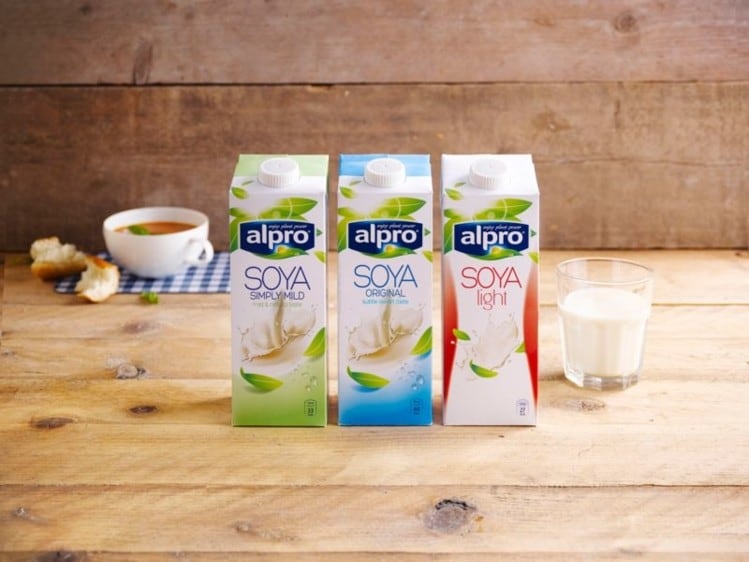
While the category is growing fast, Penchienati-Bosetta believes there is still a long runway of future growth. “There are a lot of opportunities in front of us because penetration is still low. When you look at the most developed market, the US, penetration of plant-based is 44%. It has increased quickly - it was around 16% ten years ago – and we continue to gain penetration. In Europe, we have huge opportunities. Penetration of plant-based is 28% in Germany, with monthly penetration that is more around 10-15%.”
The International business chief claimed that Danone is in a good position to take advantage of these ‘really big’ opportunities’: “We have fantastic brands to tackle them, whether it's Silk in the US or Alpro in Europe.”
She expects growth to be driven on the core business, through innovation. Expansion in new geographies is also on the cards. “If we look at the contribution to overall sales outside the US, in 2015 it was 15%, today it's almost 50%. There is a big acceleration in Europe and other countries in Latin America and elsewhere.”
The rise of the flexitarian consumer
Many commentators view plant-based as a competitor for traditional dairy brands. Penchienati-Bosetta takes a different view and believes it is possible to deliver growth in plant-based without risking cannibalisation of dairy revenues.
For Danone, the aim is to grow both sides of the plant-based and dairy business.
"That is linked to consumer trend towards more flexitarian diets, combining both dairy and plant-based alternatives. We need to be there to answer this need,” Penchienati-Bosetta argued.
“There is still potential on the dairy business, as we have seen in Activia and Actimel,” she stressed.
Indeed, plant-based innovation can be leveraged to boost predominantly dairy brands, Danone believes. Penchienati-Bosetta points to an initiative in Germany as case in point: “In Germany, Activia may be a dairy brand but we have launched plant-based alternatives as well. We are seeing that it is incremental, it attracts new people to the Activia franchise that want plant-based alternatives. In terms of profile, very often they are younger, it's more the 20-35s that are going fast to plant-based.”
In this way, dairy and plant-based brands can comfortably co-exist: “It's about a complementary portfolio, being able to answer in each market the local consumer trends and needs.”

Pouring cold water on Danone’s performance?
While COVID may have proven a boon to some of Danone’s brands, in the waters division the opposite is true as sales were hit by the sudden closure of out-of-home channels.
“Because of the lockdowns, worldwide and in Europe, mobility has majorly decreased. The away-from-home consumption, a big part of our water business, has collapsed,” Penchienati-Bosetta reflected.
Water might also seem like a less dynamic category in terms of innovation opportunity. “The innovation is not on the product for sure. All the products come from mineral sources, it is nature that filtrates the water and we cannot touch this,” she conceded.
However, Penchienati-Bosetta was quick to stress that water – and healthy beverages more generally – feed into the mega-trend around health. She also pointed to innovation opportunities on both packaging and format.
Efforts to move to recycled PET bottles are being accelerated. Some brands and country units have already achieved this target. In Germany, for instance, Volvic uses 100% r-PET. The objective is to move all of Danone’s water brands to this standard by 2025.
“That's a big movement,” according to Penchienati-Bosetta, who added that it aligns with another rapidly emerging consumer trend: demand for more sustainable products.
“We are able to combine brand delivery with having a positive impact on the health and the planet. That is what is driving everything we do - because it is what the consumer wants.”
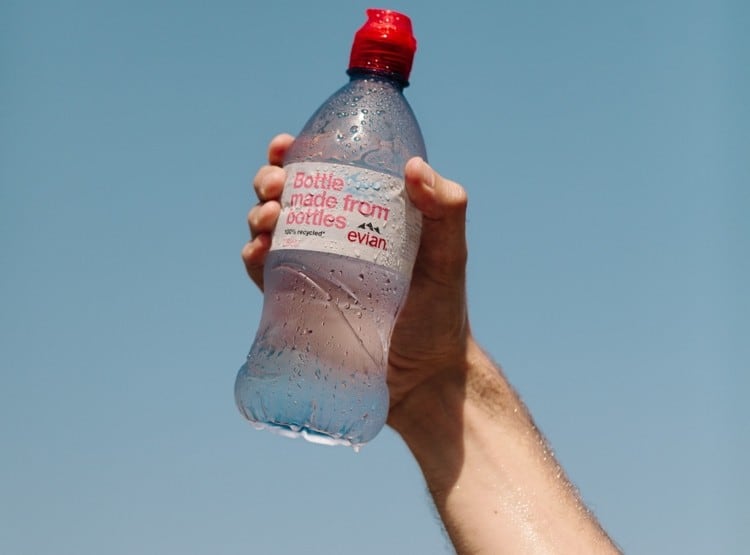
Within Danone’s drinks space, there is also potential to leverage the strength of the company’s water brands to disruptive effect by developing flavoured ‘healthier beverages’.
“The healthier beverage segment is leveraging the equity we have on the water brands and providing healthier alternatives. This is a key strategic growth space for the future.”
Leveraging the science behind specialised nutrition
Danone’s specialised nutrition unit consists of two core businesses: medical nutrition and infant nutrition.
Through the Local First structure, Penchienati-Bosetta sees an opportunity to leverage something that is perhaps specialised nutrition’s biggest asset - its scientific know-how - in the mainstream consumer space.
“I believe that through Local First we have a fantastic opportunity to put all the knowledge and science that we have in specialised nutrition to the benefit of new trends as well as our other categories,” she told this publication.
“For instance, when we talk about healthy ageing, we know that in 2050 one-third of the world population will be 50-years-plus. They will clearly need, in terms of prevention, [dietary intervention] on mobility, brain, immunity. And for that we have just fantastic scientific estate in specialised nutrition."
For this reason, healthy ageing is one of Danone's future growth pillars.
“Under our local first organisation, we plan to have three acceleration units: One on plant-based, to drive acceleration and the roadmap towards €5bn from a sourcing point of view, a science point of view, an innovation point of view. One on healthy ageing, with exactly the same approach. And another one on e-commerce.”
Accelerating in e-commerce
E-commerce is a ‘booming trend everywhere’, Penchienati-Bosetta continued.
“We want to equip all the countries with capabilities to accelerate on e-commerce, which is today more than a channel but a true business model.”
Danone is growing its e-commerce business in direct-to-consumer as well as through supermarket online sales and pure-play online retailers. Penchienati-Bosetta said that 2020 saw Danone ‘gain share very significantly’ online across all its categories. “Today, it is 8% [of sales] - two or three years ago it was 4%. We have doubled e-commerce, growing plus-40% in some categories.”
In this area, too, she believes that Local First offers the opportunity to step-up growth. “It will help us strengthen our capability at a local level. It is really a key enabler for acceleration.”

